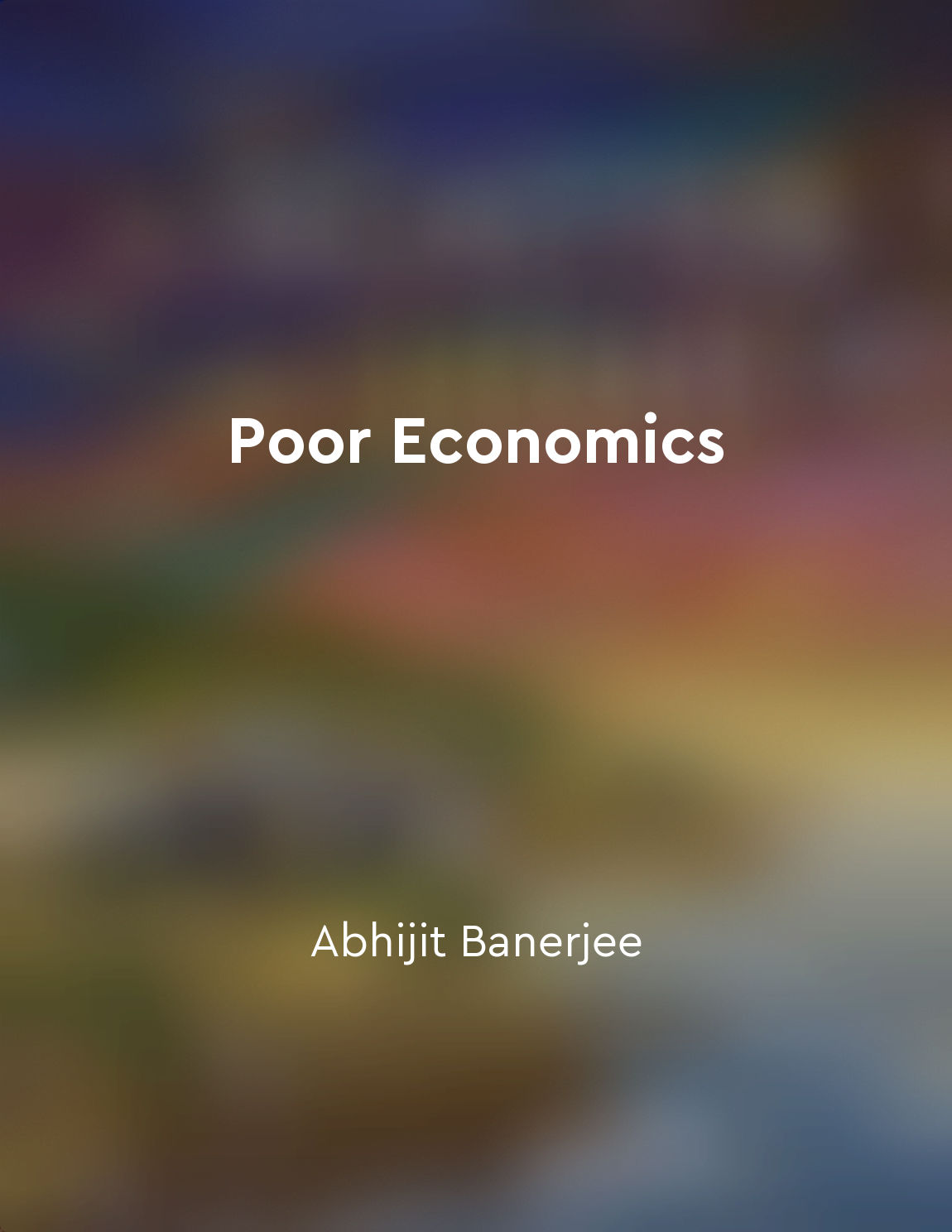Cultural factors can influence the success of poverty interventions from "summary" of Poor Economics by Abhijit Banerjee,Esther Duflo
Cultural factors play a crucial role in determining the effectiveness of poverty interventions. These factors can shape the way individuals perceive and respond to various interventions aimed at alleviating poverty. For instance, cultural norms and beliefs can influence people's willingness to participate in programs or adopt new practices. In some cases, deeply ingrained cultural practices may hinder the success of poverty interventions by creating barriers to change. Moreover, cultural factors can also impact the way interventions are designed and implemented. When policymakers fail to take into account the cultural context in which interventions are being carried out, they risk alienating the very people they are trying to help. For example, a top-down approach that does not consider local customs and traditions may be met with resistance or even rejection by the community. In addition, cultural factors can affect the sustainability of poverty interventions. Without considering the cultural norms and values of the target population, interventions may struggle to ga...Similar Posts

Provide education for girls
The world will never unlock its full potential until we educate every girl. When we invest in girls' education, we see more tha...
Sustainable practices are being adopted
The shift towards sustainable practices is evident in various sectors across the globe. This transition signifies a conscious e...
Collective action is necessary for social change
It's clear that no one person can bring about social change on their own. It takes a collective effort, a coming together of in...

Overcoming childhood trauma requires healing
In my upbringing, I witnessed and experienced a lot of trauma – from addiction to violence, from instability to poverty. These ...
Social justice issues are interconnected with feminism
Feminism cannot exist in isolation. It is not just about gender equality within a vacuum; rather, it is deeply intertwined with...

Social networks can be key in helping individuals overcome poverty
Social networks can be critical in helping individuals escape poverty. The people we know and interact with regularly can provi...
Encouragement of empowerment through selfhelp groups
The idea of empowering individuals through self-help groups is essential for the upliftment of marginalized communities. By enc...

Health care is a major concern for the poor
Health care looms large in the minds of the poor. When a family lives on the edge, any illness can push them over. The fear of ...
